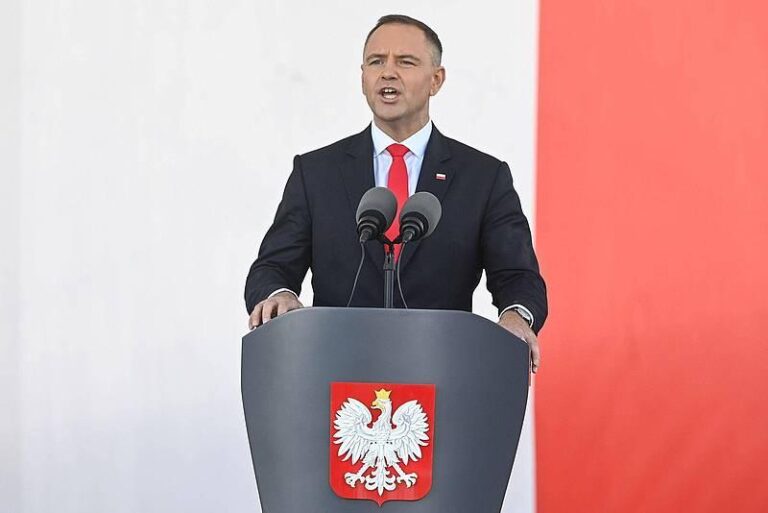Poland’s recent veto in the European Union has sparked concerns over Ukraine’s access to the vital Starlink satellite internet service, amid escalating tensions surrounding refugee aid and regional cooperation. The move comes as Kyiv relies heavily on Starlink to maintain communications amid ongoing conflict, raising alarm over potential disruptions at a critical juncture. This development highlights the growing complexities in EU-Ukraine relations, as member states grapple with differing priorities in addressing the humanitarian and security challenges posed by the war.
Poland’s Veto Threatens Ukraine’s Starlink Connectivity Essential for Communication
The ongoing diplomatic dispute between Poland and Ukraine has escalated to a critical juncture, with Warsaw threatening to veto essential measures that sustain Ukraine’s Starlink satellite network. This connectivity system has become a lifeline for millions of Ukrainians, enabling uninterrupted communication amid the chaos of war. Poland’s veto is reportedly linked to disagreements over refugee aid policies, risking the severance of a vital digital artery that supports everything from civilian coordination to military communications.
Key implications of the veto threat include:
- Disruption of communication: Millions depend on Starlink’s internet for emergency services and humanitarian coordination.
- Increased isolation: Ukrainian regions under siege could lose independent digital links, impacting both civilian and military resilience.
- Political tension: The veto adds strain to regional alliances critical for peace and security amid ongoing conflict.
| Aspect | Impact |
|---|---|
| Starlink Network | Potential service disruption |
| Ukrainian Citizens | Reduced communication capabilities |
| Polish-Ukrainian Relations | Heightened diplomatic tensions |
| Humanitarian Aid Coordination | Compromised logistics and efficiency |
Implications for Refugee Assistance Efforts Amid Growing Diplomatic Tensions
The ongoing diplomatic standoff, marked by Poland’s veto against continued Starlink access in Ukraine, threatens to severely disrupt crucial communication channels relied upon by refugee assistance organizations. These digital lifelines have enabled real-time coordination, data sharing, and emergency response operations across complex, rapidly changing environments. Humanitarian groups now face mounting challenges to maintain seamless connectivity, potentially delaying aid delivery and jeopardizing vulnerable populations who depend on timely support during displacement crises.
Key impacts on refugee aid efforts include:
- Reduced reliability of communication networks in conflict-affected zones
- Higher operational risks for frontline aid workers due to information blackouts
- Increased logistical difficulties coordinating cross-border humanitarian corridors
- Potential fragmentation of international support efforts tied to digital infrastructure
| Aspect | Potential Impact |
|---|---|
| Communication | Intermittent outages, slower response times |
| Coordination | Disrupted cross-agency collaboration |
| Refugee Safety | Increased exposure to risks and delays |
| Resource Allocation | Reduced efficiency, waste due to miscommunication |
Urgent Recommendations to Safeguard Ukraine’s Access and Support Humanitarian Aid
As tensions escalate over Poland’s recent veto on Ukraine’s Starlink satellite terminals, the international community faces urgent challenges in maintaining seamless communication channels vital for coordinating humanitarian relief efforts. Starlink’s high-speed connectivity has been instrumental in ensuring that aid organizations can operate efficiently amidst conflict zones and refugee corridors. Experts urge governments to prioritize unhindered access to this technology, emphasizing that any disruption could severely hinder real-time information sharing, jeopardizing aid distribution and medical assistance for millions affected by the crisis.
To mitigate these risks, immediate action is recommended: strengthening diplomatic dialogues between concerned nations, allocating emergency funding to deploy alternative communication infrastructures, and enhancing cross-border cooperation to safeguard the flow of humanitarian supplies. The following table outlines key recommendations and their potential impact on sustaining Ukraine’s aid network:
| Recommendation | Impact |
|---|---|
| Diplomatic Mediation | Restores technology access and political trust |
| Alternative Connectivity Solutions | Ensures continuous communication during disruptions |
| Regional Aid Coordination Platforms | Streamlines relief operations across borders |
Final Thoughts
As tensions escalate between Poland and Ukraine over refugee aid, the potential Polish veto threatening Ukraine’s access to Starlink services adds a new layer of complexity to the ongoing crisis. With reliable connectivity being vital for Ukraine’s defense and humanitarian efforts, any disruption could have significant consequences on the ground. Observers will be closely watching how Warsaw navigates this standoff, balancing its domestic concerns with the broader geopolitical stakes involved in supporting Ukraine amid an evolving conflict.




